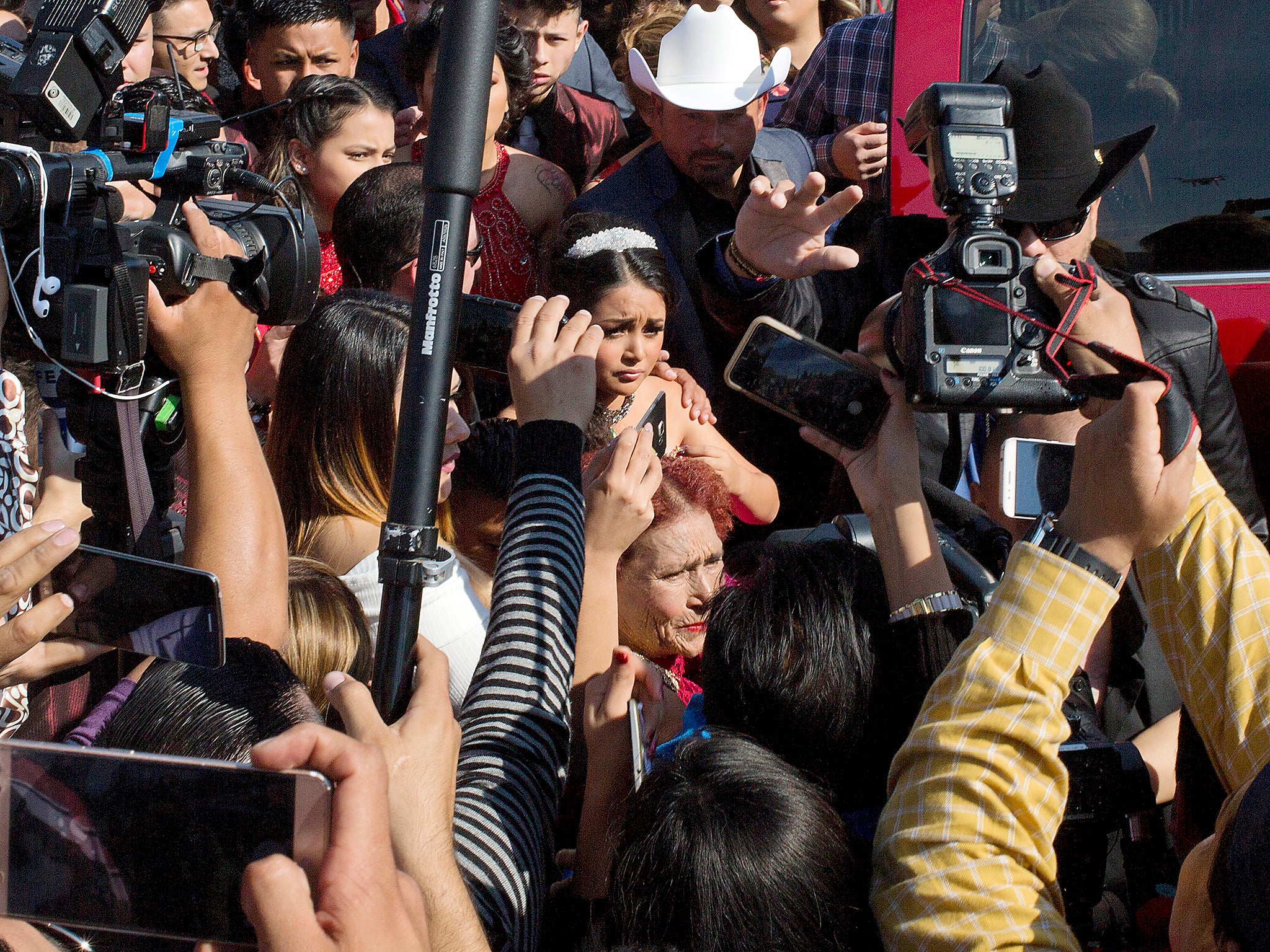Press freedom has ‘never been so threatened’ as today, says Reporters Without Borders
'The rate at which democracies are approaching the tipping point is alarming for all those who understand that, if media freedom is not secure, then none of the other freedoms can be guaranteed'

Your support helps us to tell the story
From reproductive rights to climate change to Big Tech, The Independent is on the ground when the story is developing. Whether it's investigating the financials of Elon Musk's pro-Trump PAC or producing our latest documentary, 'The A Word', which shines a light on the American women fighting for reproductive rights, we know how important it is to parse out the facts from the messaging.
At such a critical moment in US history, we need reporters on the ground. Your donation allows us to keep sending journalists to speak to both sides of the story.
The Independent is trusted by Americans across the entire political spectrum. And unlike many other quality news outlets, we choose not to lock Americans out of our reporting and analysis with paywalls. We believe quality journalism should be available to everyone, paid for by those who can afford it.
Your support makes all the difference.Media freedom has “never been so threatened,” a leading watchdog has said, with the situation in democracies “approaching tipping point”.
Reporters Without Borders (RWB) said their global media freedom indicator – which measures threats to journalists – had never been so high in its 15-year history.
The group expressed particular concern about the fragility of media freedom in western democratic nations, where it said a “highly toxic anti-media discourse” emerged during the campaigns of Donald Trump and Britain’s EU referendum.
President Trump has frequently attacked news organisations whose work he does not like, often using social media to accuse outlets of “fake news”. Under his leadership, the White House has also attacked journalists and excluded certain news organisations from briefings.
In the UK, pro-Brexit campaigners frequently attacked news organisations, such as the BBC, as biased.
RWB said these events contributed to driving the world into a new post truth era.
“The rate at which democracies are approaching the tipping point is alarming for all those who understand that, if media freedom is not secure, then none of the other freedoms can be guaranteed,” RWB secretary-general Christophe Deloire said. “Where will this downward spiral take us?”
Both the US and UK have fallen down the list, along with Canada and New Zealand. All were previously considered to be “virtuous” countries for press freedom, RWB said. In addition to the rise of an atmosphere of misinformation, RWB criticised the “obsession with surveillance” and attacks on anonymous sources.
“The democracies that have traditionally regarded media freedom as one of the foundations on which they are built must continue to be a model for the rest of the world, and not the opposite,” Mr Deloire said.
“By eroding this fundamental freedom on the grounds of protecting their citizens, the democracies are in danger of losing their souls.”
In other democracies, the situation is even worse. Poland’s ruling Law and Justice party has ousted executives of broadcast outlets and replaced them with their allies, RWB said, turning them into “propaganda outlets”. Similar events have occurred elsewhere in Europe.
RWB said political pressure, including the denial of funding, targeting whistleblowers and other pressures can have an insidious effect on media freedom.
“This trend is all the more worrying because democratic governments no longer hesitate to use ever more radical methods to obstruct the work of the media,” said RWB Editor-In-Chief Virginie Dangles.
The situation in Turkey is particularly bad, RWB said, with a failed coup last summer being used as pretext to crack down on reporting in the country. More than 100 journalists have been detained without trial, leading the group to describe the country as “the world’s biggest prison for media professionals.”
But the worst countries for media freedom are outside of Europe. Twenty one countries were classified as ‘very bad’ by RWB, though the group warned it was likely others will soon join them.
The very worst country for press freedom was North Korea, closely followed by Eritrea and Turkmenistan.
Famously secretive, North Korea totally controls all aspects of the media and simply tuning into a foreign radio station can result in being sent to a concentration camp.
Less attention is given to Eritrea and Turkmenistan, though both are extremely tightly-controlled societies which isolate their citizens.
President Issayas Afeworki of Eritrea has ruled the country since 1993 and oversees a regime which detains anyone trying to work independently as a journalist. Even footage smuggled out from the country is rare.
Turkmenistan is also highly controlled and the few journalists working independently in the country do so in secret, RWB said.
Other countries at the bottom of the list included British allies. In Saudi Arabia, RWB highlighted the imprisonment and flogging of blogger Raif Badawi.
Join our commenting forum
Join thought-provoking conversations, follow other Independent readers and see their replies
Comments